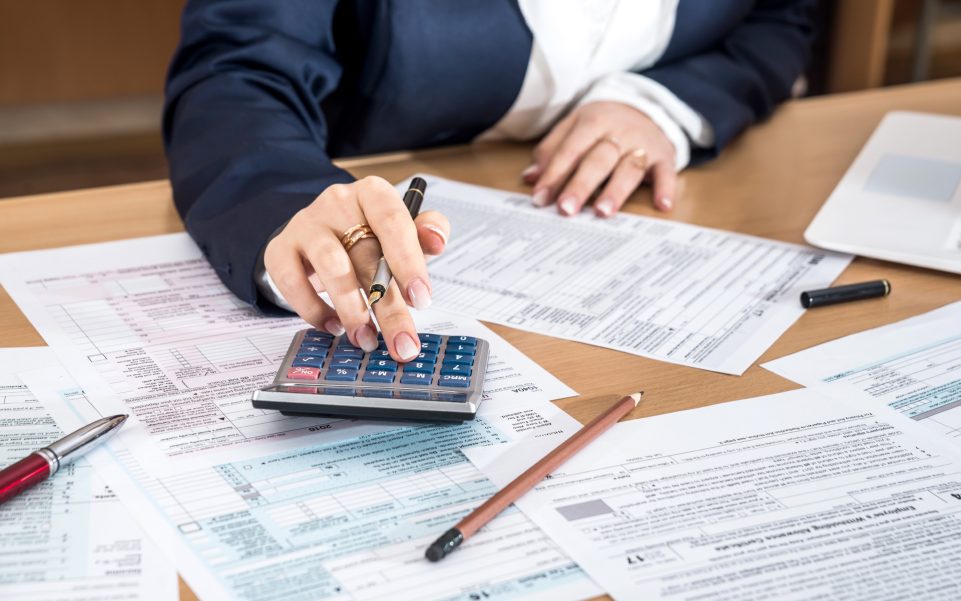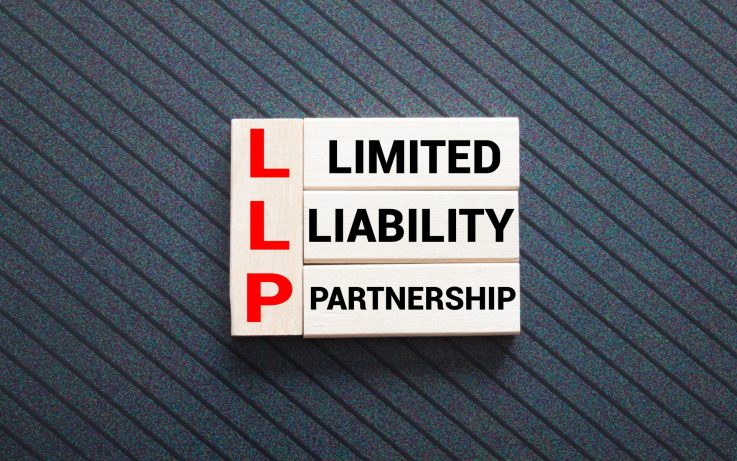UK Taxation for Individuals: How To Save Money?

It is a common belief that UK tax laws are strict and the current tax rates for individuals are unreasonably high. But is that so?
If HM Revenue and Customs gets up to 45% of people’s income and the inheritance tax is 40%, why do more wealthy people choose the UK as their second home? It is highly unlikely that it is London’s beautiful architecture or breath-taking landscapes of the Scottish Highlands that bring them here. People come to the UK because it offers ways to optimise taxes. It is important to remember that all of them are legal and do not suggest tax avoidance.
Do you want to know more about how to save money on taxes in the UK? Read this article which will only take about eight minutes. However, before we plunge into the jungle of tax optimisation, let’s start with the basics. We thought the best way to structure this would be in the form of a Q&A.
Who Pays Taxes in the UK?
Everyone who gets income or profit in the UK, even non-residents, must pay UK income or corporation tax.
Tax residents usually pay UK tax on all their income/profits received outside and inside the UK. However, some UK laws and intergovernmental treaties provide exemptions to individuals and companies where they do not have to pay UK Tax on their foreign income/profits.
When Do I Become a UK Tax Resident?
Unlike other countries where you must be physically present for over 183 days to be considered a tax resident, you can become one in the UK earlier than that.
There is a Statutory Residence Test on the government website to determine a tax status using a calendar and calculator. By taking the test, you can establish when you become a UK tax resident and prepare for it in advance.
Who Is a Resident?
There are two statuses, tax and immigration, that often get confused. A tax resident is a person with many economic ties to the country that give rise to a lot of liabilities, including reporting and paying taxes to the HMRC from their worldwide income.
A resident for immigration purposes is a person who has the right to reside in the country for a long time because they have a long-term visa, an Indefinite Leave to Remain, or citizenship. However, immigration status does not automatically make you a tax resident.
What Is a Tax Year?
A tax year in the UK is a period of twelve months, at the end of which a tax return is completed to determine a taxable base and calculate and pay tax on income received during that period. Other terms are used to describe this period, reporting year, or accounting period.
A tax year for UK individuals starts on 6 April and ends on 5 April of the following year. A tax resident is then given nine months, from 6 April to 31 January, to prepare and submit a self-assessment tax return and pay all taxes. You will pay a late filing penalty if your tax return is overdue.
Which Taxes Are Paid in the UK?
Economically active individuals pay several taxes; the main one is an income tax which goes up to 45% in some cases.
Basic UK taxes include:
- Income tax is charged on income received inside and outside the country.
- Social contributions are deducted from the employment and self-employment income.
- Capital Gains Tax is levied on gains from the sale of assets.
- Stamp Duty Land Tax is imposed on purchases of land and properties.
- Council tax is paid annually by property owners or tenants.
- Vehicle tax is paid annually by vehicle owners.
In addition to the taxes listed above, there is also an inheritance tax charged on the part of the estate they inherit unless they are a spouse of the deceased. The standard inheritance tax rate is 40%.
Income tax rates for UK individuals in 2022
| Taxable income (£) | Tax rate |
| Up to 12,570 | 0% |
| 12,571 to 50,270 | 20% |
| 50,271 to 150,000 | 40% |
| Over 150,000 | 45% |
The standard personal allowance is £12,570; it is income that is not taxed. If you earn less than £12,570 of taxable income per year, then you have no income tax to pay.
Example: a tax resident earns £65,000 in a tax year. Income tax calculations will look like this: (£65,000 – £50,270) * 40% + (£50,270 – £12,570) * 20%; the total is £13,432.
Is Foreign Income Always Taxed?
A simple answer is no. UK tax residents can choose to pay tax only on income earned inside the country.
You can choose between a special tax treatment available only to UK tax residents who were born overseas or double taxation treaties that the UK signed with more than 130 countries around the world.
How to Avoid Double Taxation?
The UK has double taxation treaties with many countries that will protect you from paying tax twice on the same income. This can significantly reduce your tax burden.
Generally, income received from business or employment abroad is subject to such treaties. For example, if you live in London but your income is generated by a business in Russia, you pay an income tax of 13% in Russia. Then you deduct it from your tax liabilities in the UK, where you are a tax resident.
Double taxation treaties protect you from being taxed twice on the same income source. However, it’s advisable to talk to a qualified advisor and read the relevant international taxation treaty together. You will know exactly what is taxed in your home country and the UK and restructure your income accordingly.
What Is the Remittance Basis?
Domicile is a common law status in the UK legislation that offers tax residents access to the remittance basis of taxation.
Unlike tax residence and immigration status, there can only be one domicile – by birth or by choice. Domicile refers to a person’s belonging to a state. You can pay taxes in several jurisdictions and have multiple nationalities, but you cannot have more than one domicile.
UK non-domiciled tax residents can choose a special tax treatment whereby they pay tax only on income received in or remitted to the UK. It is called the remittance basis of taxation. It is not always wise to choose this basis and there are a few important factors that must be considered:
- Individuals claiming the remittance basis must report their foreign income only if it is brought into the UK.
- If you’re taxed on a remittance basis, you lose an annual personal tax allowance of £12,570 in the UK.
- You pay UK taxes on your foreign income only if it’s remitted to the UK.
- There is a charge for using the remittance basis that applies after 7 tax years.
- UK tax residents that have lived in the country for a long time are considered deemed domicile and can’t apply for the remittance basis.
The decision to use this tax treatment must be well thought through by each UK tax resident, based on calculations, and it can be changed every year. The remittance is worth it if at stake is a handsome amount – income from an overseas business, capital gains from the sale of high-value assets outside the UK, etc.
The estate of a deceased non-domicile who lived in the UK is subject to a 40% inheritance tax. If they lived in the country for less than 15 years, only the UK estate will be taxed; if they lived here for more than 15 years, they were deemed domicile, and the tax will be imposed on the estate worldwide.
What Is Remittance Basis Charge?
If you have been a UK resident for at least 7 of the previous 9 tax years, you must pay the remittance basis charge from the 8th tax year.
You must pay an annual charge of £30,000 if you have been a UK resident for at least 7 of the previous 9 tax years and £60,000 if you have been a UK resident for at least 12 of the previous 14 tax years.
Deemed domicile rules came into force in the UK on 6 April 2017; they apply to individuals of foreign origin who have been tax residents for at least 15 of the 20 tax years of living in the country.
These rules automatically “domiciled” hundreds of wealthy foreigners who can no longer claim remittance and must pay taxes on all their worldwide income. Changes have also affected the inheritance tax; now the worldwide estate of UK deemed domiciles is subject to inheritance tax.
How To Prepare Capital Before Becoming UK Tax Resident?
Money earned before becoming a UK tax resident is so-called ‘clean capital’. It can be remitted to the UK without the liability to declare and pay tax. Clean capital should not be mixed with foreign income and gains arising after becoming a UK tax resident.
Here are a few practical tips from experienced consultants:
- UK tax residents are liable for capital gains tax. Therefore, if you plan to sell some assets such as property, do it before becoming a tax resident.
- Open 3 separate bank accounts outside the UK and do not mix funds:
- A clean capital account – you will be able to transfer it to the UK without tax liabilities.
- A capital gains account – for funds received from the sale of assets.
- An income account – for business income, salary, royalties, bank interest, etc.
How to Lose UK Tax Resident Status?
Let’s start by looking at reasons why people might want to do it. It is a simple choice for UK residents who live and work abroad and plan to save on income and capital gains taxes.
You are a non-UK tax resident if:
- You have spent less than 45 days in the UK and you have not been a UK tax resident in the three previous tax years.
- You have been a UK tax resident in one or more of the three previous tax years but have spent fewer than 15 days in the current tax year.
- You work full-time outside the UK:
- You spend fewer than 91 days in the UK.
- The number of days you have worked in the UK for more than 3 hours a day does not exceed 30 days.
You can still become a non-resident, even if you do not meet any of the criteria listed above. Moreover, you do not have to leave the UK for a few years to lose your tax residence status; it is enough to lose a few ties to the country. Do you want to know which ones? The answers are in the UK tax residency test.
You can also lose your deemed domiciled status if you leave the UK for at least 6 accounting periods. However, it does not mean that the HMRC will start counting your tax years from scratch.
Who Are Temporary Non-Residents?
HM Revenue and Customs considers those who were in the UK for at least four tax years in the recent past and have returned to the country in less than 5 tax years as temporary non-residents. Moreover, even an incomplete accounting period, from your arrival in the country until 5 April, counts towards the four years of residency.
Why does the non-resident status exist? The HMRC needs it to be able to tax a part of the income received by such non-residents during their time abroad, such as gains from the sale of property or other assets.
We would like to close off the topic of non-residents by mentioning that even world-famous UK celebrities, who sometimes get caught by paparazzi in a rush on their way to the airport, use this “unpatriotic” way to optimise their taxes. To become a non-resident, you must be very disciplined with the dates, flexible, and mobile. Businesspeople usually consult qualified advisors.
What’s in the Ownership of UK Property via Trusts?
You may still come across outdated articles describing the benefits of buying property in the UK via trusts and companies. Whatever they say, there is no point in owning a property via an intermediary structure since the new rules came into force on 6 April 2017. A shareholder pays both a capital gains tax and an inheritance tax in full.
Taxation in the UK: Overview
UK individuals pay taxes on all their income. However, there are legal ways for tax residents to significantly reduce their tax burden.
It can be done by the restructuring of income, various preferential tax treatments, changes in the tax status, or intergovernmental treaties. Some optimisation methods have become outdated; others change regularly, such as a personal income tax allowance.
The means of reducing tax payments to the government are called tax planning. They are legal, follow UK laws and have nothing to do with a widely condemned practice of tax avoidance. And finally, if you have a trusted company to handle your tax planning, you can save a lot of money.







